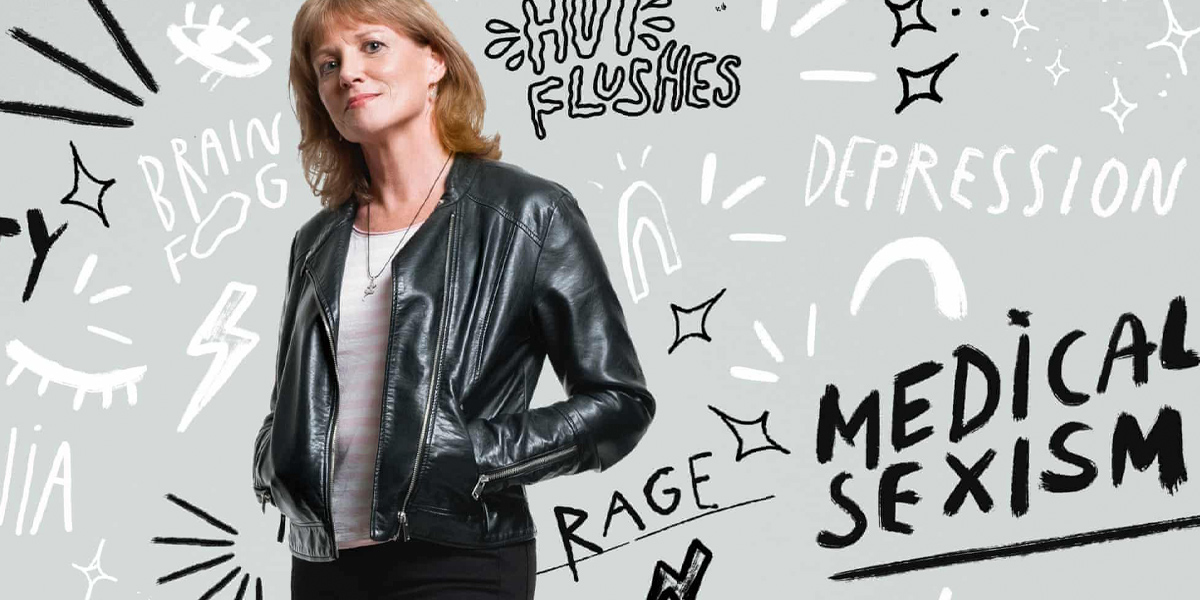
Mission menopause
‘My hormones went off a cliff – and I’m not going to be ashamed’ An estimated 13 million women in the UK are living with menopause. So why are so many enduring the turmoil of its symptoms without help and support? It’s about time that changed. Portrait by Suki Dhanda.
We are witnessing a tipping point: the rise of Menopause Power: a growing activist movement which will change the Change in the same way that Period Power fought period poverty and stigma. On social media, on podcasts and in newspapers, there’s a huge menopause conversation, as confrontational as it is celebratory. I’ve just produced a Channel 4 documentary, Davina McCall: Sex, Myths and the Menopause, and there’s nowhere we don’t go: losing jobs to hot flushes, vaginal dryness, memory loss, orgasms after menopause, and the shocking misinformation we’ve been fed on hormone replacement therapy.
But above all, we give the menopausal taboo the kicking it has long deserved. As Davina McCall, who’s presented everything from Big Brother to Long Lost Family and had her first hot flush at 44, says: “I was advised not to talk about it, that it was ageing and a bit unsavoury, but clearly that didn’t work out very well, because I’m sitting here talking to you… I’m not going to be ashamed about a transition that half the population goes through.”
There are 13 million menopausal women in the UK and 4.5 million of us make up the fastest-growing demographic in the workplace, while nine out of 10 say the menopause has adversely affected their work. Indeed, if you clapped for a key worker in lockdown, she was probably menopausal: 50% of nurses are over 50 years old. Some women find their periods stop early in their teens, 20s and 30s, and menopause affects some trans men, intersex and non-binary people on different hormonal journeys.
Illustration by Anna Kiosse. Article by Kate Muir at The Guardian
